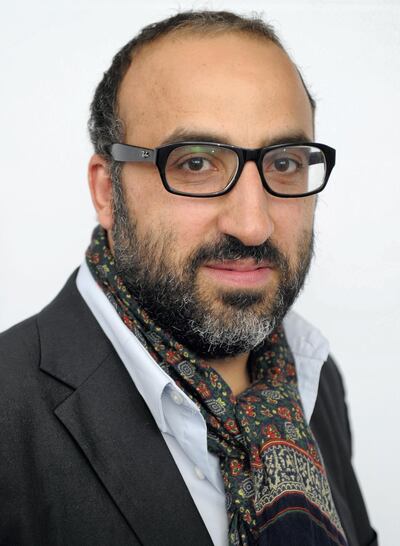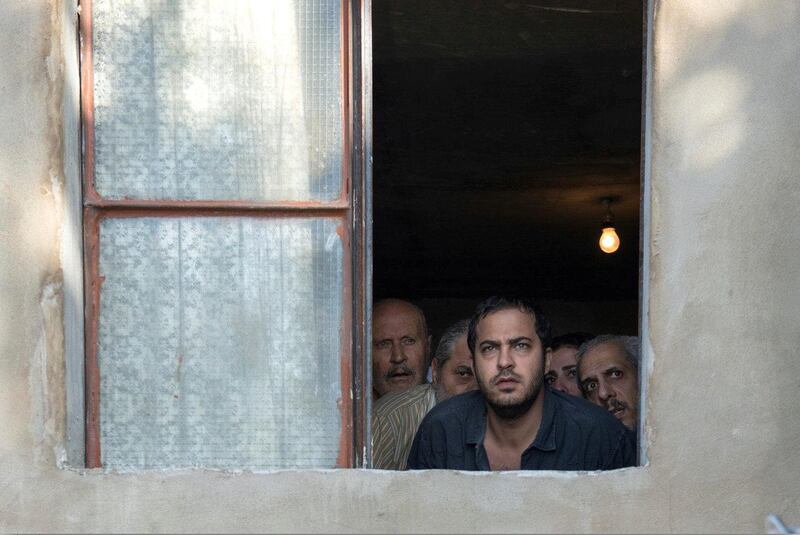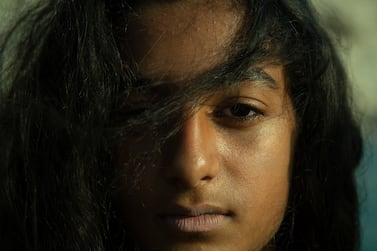From Sam Raimi's The Evil Dead and Quentin Tarantino's Reservoir Dogs to Samuel Maoz's Lebanon, some of the best directorial debuts were set largely in a single location.
The reasons are obvious: setting your script in a warehouse, a cabin or – in the case of Lebanon – the confines of a tank means that, from a logistical point of view, budgets can be kept tighter, with no need for expensive and time-consuming moves between locations.
It's exactly what Lebanese filmmaker Ahmad Ghossein realised as he developed his first feature, All This Victory, which has its premiere on Sunday in the International Critics' Week strand at the 76th Venice Film Festival. Set in 2006 in Lebanon as the war rages between Hezbollah and Israel, it follows five people as they all seek shelter in the basement of a house in a small village.
Seven Israeli soldiers enter the house in the floor above, an incredibly tense situation that spans three torturous days. Intriguingly, it's inspired by real life. "I'm from the south and I lived this war," says Ghossein. "My house got destroyed there also. And this story, it happened in my mother's village, where I spent all summers when I was a kid. I know those people and this story stayed with me for many years. And then I said, 'OK, I want to do a feature about that.'"
Born in Beirut in 1981, Ghossein is already a prize-winning director of shorts, documentaries and videos, including 2013's My Father is Still a Communist, a memoir about his parents structured around letters recorded on audio cassettes. "If you have something to say, you cannot just wait for a feature film," he says, explaining why he's used the short form to hone his craft. Most recently, he co-directed White Noise, a 17-minute comedy about a security guard on his first shift that played at the Cannes Film Festival in 2017.

Yet, as he puts it, "like every filmmaker, you want to make a feature". The horrifying true story was ideal fodder for his full-length debut. But don't expect a piece about the conflict. "It's not a war film," he clarifies. "It's in the war." The main character, Marwan, arrives from Beirut looking for his father. "His wife is waiting for him in Beirut. They want to leave to the country. He had a major question: is he going to stay? Like all my generation, they are staying here but they always want to leave."
Ghossein spent time with the real people who went through this experience. "You meet with them, they tell you the story, but they really don't tell you exactly the story. Whoever lives through a war, you lose something inside you. You cannot put it in a sentence. Even though they will tell you the event ... no one can tell the story. It's more interesting with what happens to their bodies, how they breathe, how they eat, do they make any noise, how much you can push the fear?"
The characters also lose their sense of time in what becomes an increasingly surreal tale. “There’s a lot of tension,” says Ghossein. “But I also like the balance between the tension and the poetic aspects, when it comes to the light, inside and outside, and to their bodies. Of course it’s tense, what happens to them, but [I am] playing on these elements of time, light, claustrophobia, of their relationships with their bodies, through the whole film.”
When it actually came to the shoot, having only one location was challenging. "You think one location will be easier, the budget will not have to be big," Ghossein says. "But for the director, it's a challenge. It's a big challenge for the director to have all the film in one location and to keep the camera on the characters. It's not easy for a first feature. But at the same time, it's easier to be in one location, logistically."
Using a mix of non-professionals and seasoned actors – including Karam Ghossein and Issam Bou Khaled, who both appeared in Olivier Assayas's Carlos – the director acknowledges how tricky it was for the cast. "They have to be in one situation for the whole shooting. You are in one location, one house, in real time. So the actors had to finish the shooting, come back for the next day and be in the same mentality where we finished."
If one thing helped, it was that Ghossein went to the Karlovy Vary Film Festival in 2018, screening rushes from All This Victory. It was awarded the Works in Progress prize, claiming a very valuable €100,000 (Dh400,000) to help with post-production. "It was an amazing thing that happened. It was the first time Karlovy Vary opened this prize for the Middle East and we won!" Now, he gets to show the film in Venice, much to his delight. "It can't be better than that."
All This Victory has its premiere at the Venice Film Festival on Sunday, September 1






